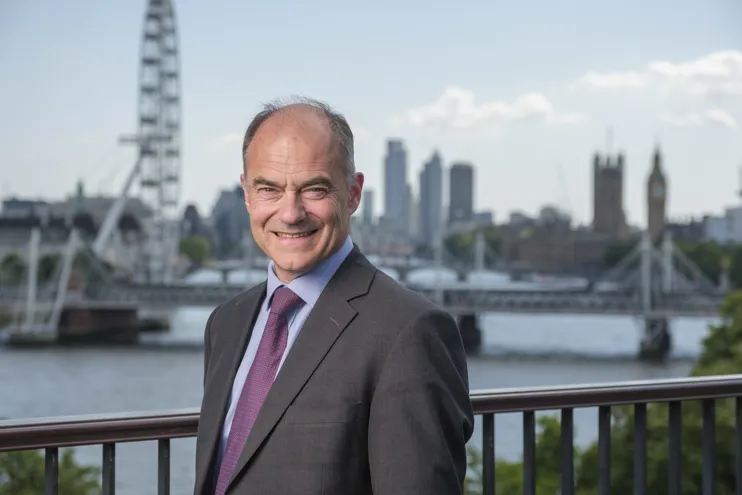Engineering the future in uncertain times
A reflection from Sir Warren East as his IET presidential year closes

It has been, in every sense, an interesting year. Since January, geopolitical and macroeconomic volatility has intensified, reshaping priorities and testing the resilience of industries, including our own. In such a climate, it’s easy to be distracted by headlines and question whether the energy transition still matters.
But the fundamentals haven’t changed. The engineering profession remains central to delivering the solutions our world urgently needs. What has changed is the context - less time, greater urgency, and a more fragile financial platform than the one I outlined last October.
Despite these challenges, I’m proud to see the IET continuing to make steady, meaningful progress. Under Ed Almond’s capable leadership and the commitment of our globally-reaching colleague and volunteer team, the organisation is reinventing itself. Silos are being dismantled, processes streamlined, and our financial resilience strengthened. The IET is now leaner, more agile, and better equipped to serve our members, their employers, and society at large.
This transformation is timely. Our 2025 Sustainability and Digital Skills Survey reveals that while 61% of engineering employers believe the current workforce is fit for purpose, a significant 35% do not. Moreover, 76% report difficulties recruiting for key roles, especially those requiring technical sustainability skills. These are the very capabilities we need to meet our decarbonisation goals.
The survey also highlights that innovative thinking is now seen as the most important skill for business growth over the next five years (42%), closely followed by technical engineering and specialist digital skills (both 39%). This reinforces our focus on future-ready skills and the importance of our work in shaping education, policy, and professional development, all the while getting closer to business and industry.
The IET’s Industry Advisory Board has convened multiple times this year, and I’m encouraged by the tangible proposals emerging around initiatives which can create real value for the business community and strengthen the IET’s relevance among employers. This is especially important as we face a growing need to upskill and reskill our workforce - something half of employers say is hindered by lack of time, and nearly as many by staff turnover.
We’ve also deepened collaboration with other Professional Engineering Institutions, particularly in shaping policy inputs for government through the National Engineering Policy Centre (NEPC). These partnerships amplify our voice and ensure engineering remains at the heart of national decision-making.
This year has taught me a great deal - not only about the limits of what the IET can do, but more importantly, about the power of what it does do. Our mission to Engineer a Better World is not just a tagline; it’s a shared responsibility. With nearly 160,000 members, each of us has a role to play in realising that vision.
So yes, it’s a cliché - but one worth repeating: ask not what the IET can do for you, but what you can do for the IET. Together, we can shape a future where engineering continues to be the driving force behind progress, resilience, and sustainability, in every sense Engineering a Better World.
